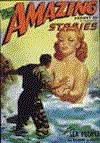|
|
|
We explore space to fulfill our dreams February 6, 2003 By Franklin Harris They fell among embers, sparkling and melancholy, screaming high across the Texas sky and falling on hallowed ground, paying the price our dreams demand. In 1967 astronauts Grissom, White and Chaffee were in their Apollo 1 command capsule when a fire broke out, birthing hell on the launch pad. In 1986 astronauts Scobee, Smith, Resnik, McNair, Onizuka, Jarvis and McAuliffe blasted off aboard the space shuttle Challenger, which exploded atop a column of flame and smoke 73 seconds after liftoff. And on Feb. 1, 2003, 16 minutes from home, the shuttle Columbia broke apart, and its crew of seven — Husband, Anderson, Brown, Chawla, Clark, McCool and Ramon — joined the roll call of those scarified in fire. Since we could walk upright, we have gazed at the sky. At first, we looked in wonder and fear, trembling beneath the wrathful eye of the sun god and the cold stare of the moon goddess. Centuries passed, and fear gave way to the Age of Reason, but when we looked at the sky our sense of awe remained. Each tiny point of light, we learned, was a sun like our own. And around some of those suns could be planets, also like our own. So, even before we could fly, we dreamed of space. When the hot-air balloon was still new, Jules Verne penned a tale of explorers shot to the moon from a huge gun. Even he would be surprised to learn how close he came to getting it right. His capsule was similar to an Apollo module, and it took off from Florida. Verne's "From the Earth to the Moon" wasn't the end. In 1901, H.G. Wells turned his attention to space, and his book, "The First Men in the Moon," sent men to the heavens inside an anti-gravity sphere. Wells was never as good at science as Verne was. Other dreamers followed, as they always do. They set down their dreams on the cheapest pulp, which turned yellow and brittle with time. But that, too, is as it always is. Paper flakes and ink fades, but dreams remain. Edgar Rice Burroughs dreamed of far-off Mars, teeming with savage life and waiting to be tamed. The Mars of his tales — Barsoom as he called it — never existed, but our Mars, with its thin air and extreme temperatures, is no less savage in its own way. No matter the setbacks, we will continue to explore worlds beyond Earth. Columbia's demise may delay us. It may force us to re-examine our space program. It may and should make us look for an alternative to the space shuttles, which are too heavy, too expensive and, as we have so tragically learned, too unreliable for the job. But it will not stop us. We will find another way because space is in our blood. It is primal. We reach for space because it is in our nature to learn and explore. It is a small step from our primitive ancestors, learning to use bones as tools, to our descendents, living among the planets and moons of our solar system and perhaps beyond. That is the connection Arthur C. Clarke and Stanley Kubrick made in "2001: A Space Odyssey." Space is the final frontier, after all. In his 1949 story "Kaleidoscope," Ray Bradbury, the poet laureate of the Space Age, wrote of lost astronauts. Tossed from their shattered rocket, they float apart, one toward the moon, another toward a meteor storm, others still toward the endless night. One falls back to Earth. As he falls, he reflects on his life and hopes something might come of it at last. And Bradbury wrote: The small boy on the country road looked up and screamed. "Look, Mom, look! A falling star!" The blazing white star fell down the sky of dusk in Illinois. "Make a wish," said his mother. "Make a wish." This is who we are, and this is what we do. We dream, and we dare. |

RECENT COLUMNS
Order a helping of Cartoon Network's 'Robot Chicken'
03/31/05
Campaign against video games is political grandstanding
03/24/05
Prize-winning author is 'Wrong About Japan'
03/17/05
Censored book not a good start
03/10/05
Some superhero comics are for 'fanboys' only
03/03/05
'Constantine' does well with its out-of-place hero
02/24/05
'80s publisher First Comics' legacy still felt
02/17/05
Director's cut gives new 'Daredevil' DVD an edge
02/10/05
Put the fun back into 'funnybooks'
02/04/05
Is 'Elektra' the end of the road for Marvel movies?
01/27/05
'House of Flying Daggers' combines martial arts and heart
01/20/05
Anniversary edition of 'Flying Guillotine' has the chops
01/13/05
Movie books still have role in the Internet era
01/06/05
Looking ahead to the good and the bad for 2005
12/30/04
The best and worst of 2004
12/23/04
'Has-been' Shatner is a 'transformed man'
12/16/04
© Copyright 2005 PULP CULTURE PRODUCTIONS
Web site designed by Franklin Harris.
Send feedback to franklin@pulpculture.net.